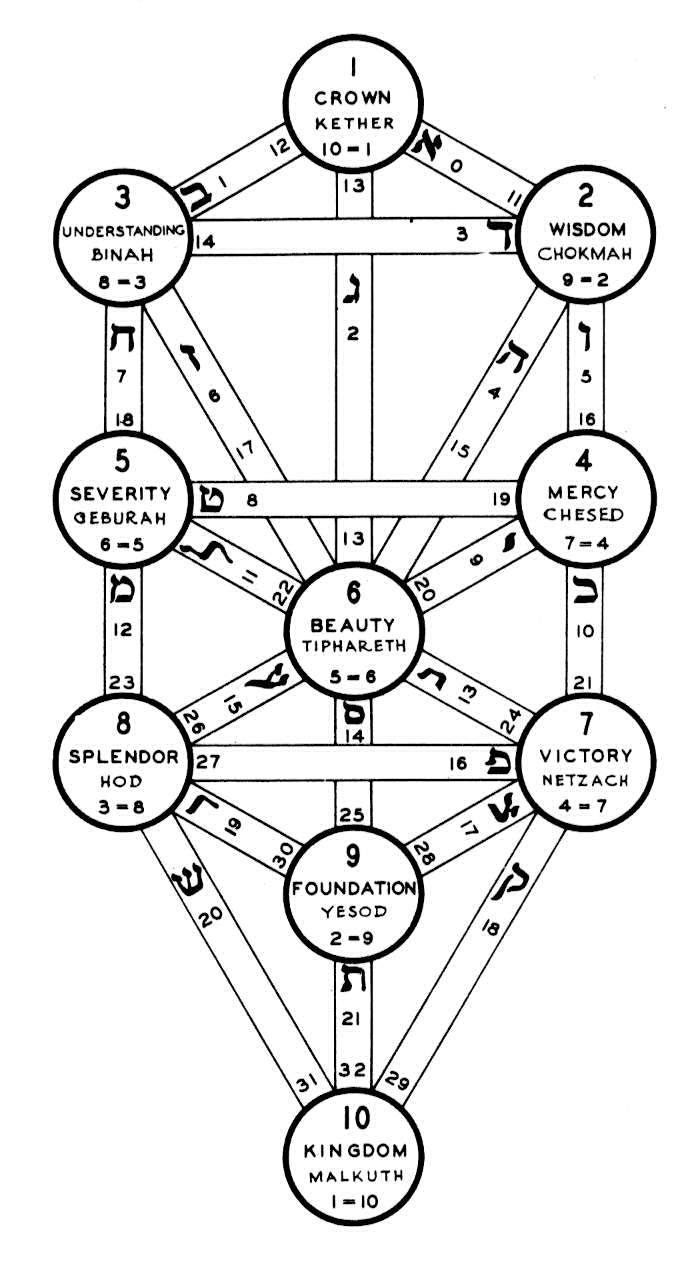
| rosicrucianU.com | ||
| Simplified Scientific Christianity |
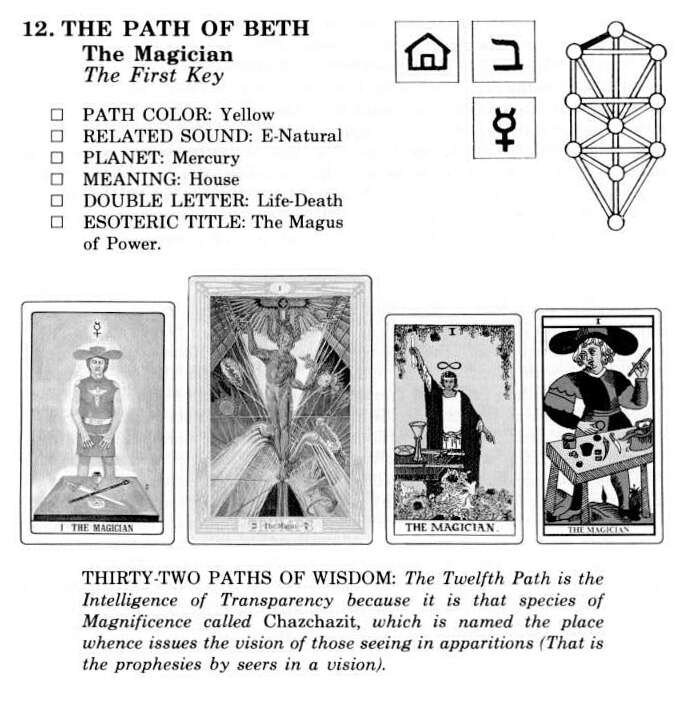
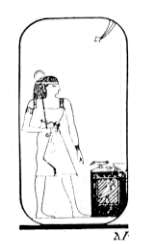
The First Arcanum is that of the High Priest or Magus, the divine Magician. He is robed in white, symbol of his attainment through purity. His head is encircled with a golden crown, typifying the awakening of the spiritual organs located therein. His waist is engirdled with a golden serpent typifying eternal Wisdom. One hand holding a scepter points upward to heaven, meaning that his high attainment has united the forces of both heaven and earth. He is a majestic figure and typifies the perfected masculine principle. He embodies the God-Power of Aleph and the number 1, which is God-in-manifestation.
Biblically he is representative of Adam in Paradise before Eve (the rib) had been taken out of his side. He is masculine as he looks upon the world spreading out before him, for the feminine is hidden within. As a result of the division into sexes, mankind descends from the Mount of Paradise and enters the lower realms of matter, space and time where the Opposites hold sway, and Paradise is but a remembered dream of bliss. The Magus has found the secret Path leading back to that Mount of Glory.
The word table in Hebrew refers to something which is spread out, or in which something is enfolded. Esoterically, it refers to an aura of protection. Upon the table before which the Master stands are arranged four articles which are symbolical of his Patti of high attainment. The first is a Wand or Scepter, which represents the God-power awakened within him. The second is a Cup, which symbolizes transmutation (the personality transformed into spirit). The third article is a Sword, symbol of victory, the victory of renunciation, of learning to walk the way of pain and sorrow in perfect peace. The fourth article is a golden coin which typifies truth, as enunciated by the Lord Christ to His Disciples in the words, "Seek ye first the kingdom of heaven and all else shall be added unto you."
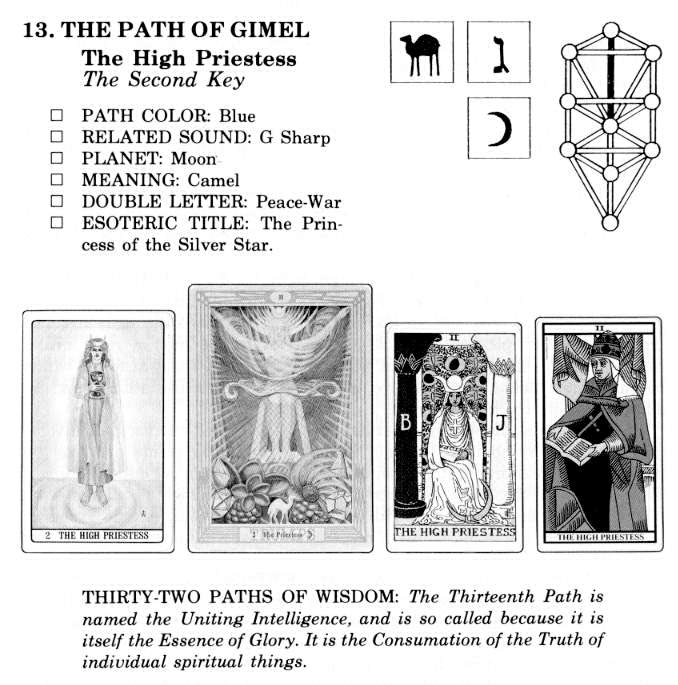
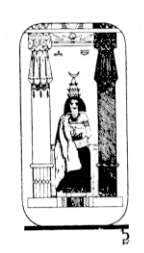
The Second Arcanum is that of the High Priestess and is termed the Gate of the Sanctuary. The Priestess is seated on a throne between two columns, one white, the other black. These typify the contesting forces of the "opposites" so-called White against Black, with which every aspirant becomes familiar when he enters the Path of Attainment. The "opposites" include Day and Night, Good and Evil, New and Old and all those "opposites" in the natural order which are a mingling of happiness and despair, comfort and discomfort, sickness and health, hot and cold, poverty and wealth, etc.
The head of the Priestess is crowned with the crescent, indicative of fecundity and fertility. Her face is hidden by a veil. Her breast is adorned with the great solar cross representative of universal creativity. She is therefore the symbol of the Great Secret or Hidden Feminine. She is in truth Mother Nature in her most secret and sacred aspects, prolific in her production of life, rich in the abundance of gifts to her children. Her mysteries are also most sacred and most secret, and she is identified with the Hidden Wisdom, for upon her lap she holds a scroll or Book which is partially concealed by her mantle, and this tells us that the aspirant must make himself worthy to partake of the knowledge and power conferred by the Book of the Wisdom of Nature. This is the Principle of which the Bible speaks when it says, "Wisdom is justified of her children" (the Initiates). Of her the Egyptians said, "I am Isis. No mortal man hath ever me unveiled."
The opening chapters of the Book of Genesis describe mankind made in the image and likeness of God. The First and Second Arcana are a pictured representation of this perfected man and woman, the Archetypal Man. We meet the two Perfected Ones again in the New Testament in the persons of Joseph and his wife Mary, the parents of Jesus.
On the high plane of divinity or God-Consciousness, the High Priestess denotes the Glory of Shekinah, the manifested Presence of God as she begins to reveal Herself to her children, the Initiates. This is the "upper" Shekinah of the Kabbalah; the Shekinah of the Mysteries. In the next Tarot card we are shown the "lower" Shekinah, not as a "fallen feminine," but as God's manifestation in the realms of Nature. The disciple is taught to relate these two aspects of the Divine Feminine as being the manifestation of God on the inner and the outer planes of Nature.
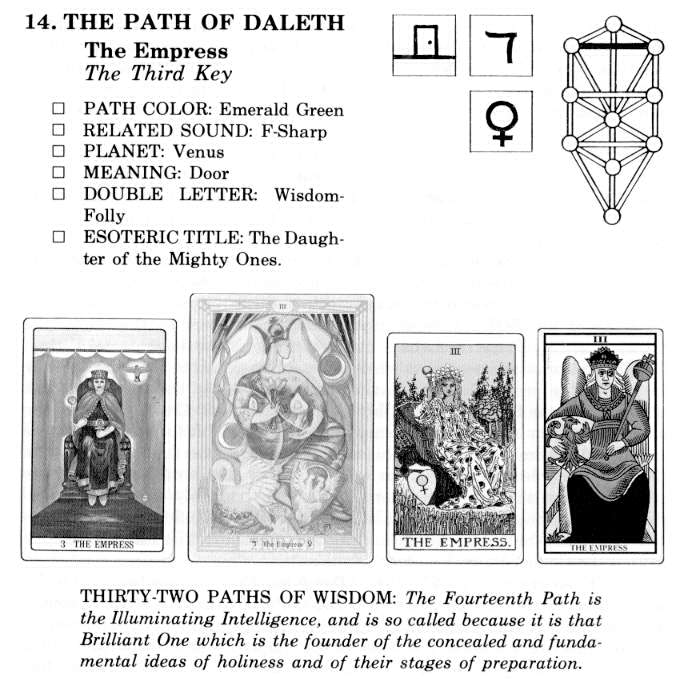
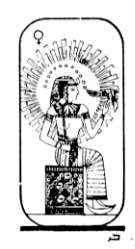
The Third Arcanum is termed the Isis-Urania. Here we see again the beautiful figure of the High Priestess. This time, however, her feet are resting upon the moon. Her body is radiant with the golden nimbus of the sun, and her head is crowned with the glory of twelve stars. She is seated upon a cubic stone which is covered with eyes, and upon which is also inscribed the picture of a cat, the animal that sees both in light and in the dark — the whole a composite symbol of clairvoyance. The Urania holds a scepter which points heavenward. Upon the other hand rests an eagle which represents the power of the New Age. This card is also termed the Venus-Uranis, or Celestial Aphrodite, as shown by the emblem of the planet in the upper left comer.
Kabbalists look upon the Iris-Urania as symbolic of the Feminine in Exaltation. Her twofold Mystery, shown in the Arcanes II and III, are signified biblically in the two H's of the Tetragrammaton: J-H-V-H. The letter He is also associated with E, the Hebrew alphabet having no vowels, but is generally termed H. The Tetragrammaton is the Greek name for the Sacred Four Letters which in the Hebrew stand for the Ineffable Name of God: Jod-He-Vau-He. The sacred Name was never pronounced except by the High Priest in the inmost sanctuary of the Temple, and certain substitutes for the Word were chanted under cover of the holy choir, for even these substitutes might not be used lightly. The word Adonai was such a substitute. It was only at special times that the Name was pronounced by the High Priest, and it was accompanied by the loud blast of the trumpet so that the magic intonation might never be heard by the unworthy.
Yod represents the perfected masculine principle of the First Arcane. He typifies the eternal feminine of the Second Arcane. Vav or Vau represents the vessel of transmutation, in which the He, of generation is lifted to become the second or renewed He, the redeemed feminine of regeneration.
In the mystical interpretation of the New Testament the alchemical mystery of the Word is shown in the life work of Mary of Bethlehem, the blessed mother of the holy Master Jesus. She descended to earth for the sole purpose of becoming the mother of the Savior. She was born into the most exalted ranks of the Essene Order; and when the times were propitious, she left the innermost cloister of the Order to become a Householder so that she might prepare for Christ's incarnation. Thus in her role of Householder she represents the first He or Feminine in Generation. After her mission was accomplished, she was lifted by the rite of the Assumption to become the second He or Feminine in Regeneration, wherein she passed into the celestial realms. to become "Queen of Heaven," companioned at all times by the celestial hosts. Thus she remains for all time the perfect type-pattern of the Exalted Feminine (e-V-E), whom St. John describes in the Book of Revelation, "a woman clothed with the sun and with the moon under her feet (having overcome all earthly propensities) and upon her head a crown of stars" — showing that she had achieved to the power of the liberated ones and would henceforth collaborate with the great Hierarchies who surround our solar system and who transmit to it the powers emanating from the twelve zodiacal constellations.


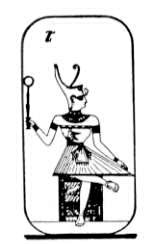
In this picture we see portrayed a man (the aspirant), seated on a cubic stone, with one leg crossed over the other. In his right hand he holds the scepter of the Magus — the staff with a ring — which is pointing toward heaven, while the left hand gestures toward the earth, showing that materiality must be conquered before he can soar heavenward. Upon his breast is a dove, meaning that purity is a supreme power of attainment. The cubic stone represents the long and arduous work of preparation. The Masonic fraternity has a very beautiful teaching in connection with this. The candidate is admonished that his supreme work is to change the rough ashlar into the perfect cubic stone.
There are many references throughout both the Old and New Testaments to the building of the perfect stone (which has reference to the "soul body" in the Western Wisdom Teaching).
In the life of the great Hebrew leader Joshua (who is the "Jesus" of the Old Testament) there is an interesting story relating to the work with stones. This is one of the Twelve Labors through which he is prepared for his eminent leadership.
When the Initiate leaves the unillumined wilderness behind and enters into the land of light he sets up twelve stones in Gilgal. The twelve stones are the twelve spiritual centers in the body which are "set up" into activity when a certain stage of development has been attained. Seen clairvoyantly, these centers appear as whirling vortices of energy, hence their symbolical placement in Gilgal, a name which means a "circle" or "whirlwind." They are the lotus blossoms in the language of oriental occultism and the roses that bloom upon the cross of the body in Western esotericism.
The stones, it is stated, are there "unto this day." In other words, the centers of light and power which Joshua had aroused to active expression are present today in the body of every human being, though latent in the great majority. The process of their unfoldment is one of the principal subjects dealt with by the Bible writers.
St. Peter, by reason of his spiritual accomplishments, was numbered among the first three of the Immortal Twelve. To him the Master said, when he changed his name from Simon to Peter, "You are now Peter, and upon this Rock(of Initiation) My Church is founded."


Here the Priest of Isis is sitting between two columns decorated with palm branches indicative of triumph. Every aspirant must at some time be worthy to stand between the two columns of the Sanctuary, for they typify equilibrium between the masculine and feminine principles in both man and nature. In one hand the Priest holds a staff with three bars which indicates mastery of the physical, the mental and the spiritual. At his feet kneel two figures, one white, the other black, representing the mastery of the good and evil forces within himself and in the world around him. This entire Arcanum is symbolic of triumphant mastery. The most important work of every aspirant is to learn self-control. He can never hope to control the forces of nature about him until he has learned to control the forces of nature within himself. This is one of the prolonged and arduous labors which make the Path so difficult.
One of the wisest teachers of the Old Testament dispensation had learned this lesson well for himself, and he taught it to his disciples when he said, "Greater is he that controlleth himself than he that taketh a city."
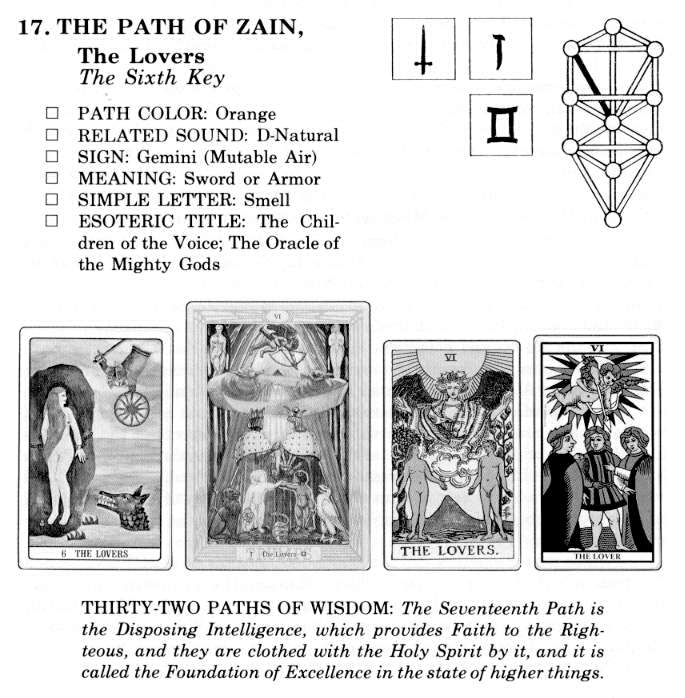

In this Arcanum we see a youth standing between two beautiful maidens. One is crowned with leaves of gold — for she is Athena, the Goddess of Wisdom. The other is crowned with the leaves of the vine — she is Aphrodite, the Goddess of Love. These two maidens represent two diverging Paths, and every aspirant must make his choice as to which path he will take — the path of Spirit or the path of sense. The supreme Master said, "Many are called but few are chosen." This is the Place of Dedication. Above them a figure hovers, pointing an arrow toward one, indicative of the heavy karmic debt awaiting him who chooses the negative path. All of the important characters in the Bible have passed this way. In the Book of Genesis Abram and Lot, when they came to this testing place, parted company. Abram chose the way that led to Caanan, the Land of Promise, while Lot chose to pitch his tents in the plain adjacent to Sodom, a city given over to such wickedness that it was at last destroyed utterly. Lot and his family were saved only through Abram's intercession, for Abram had reached that high state of mastership wherein he was instructed, guided and companioned by the angelic hosts.
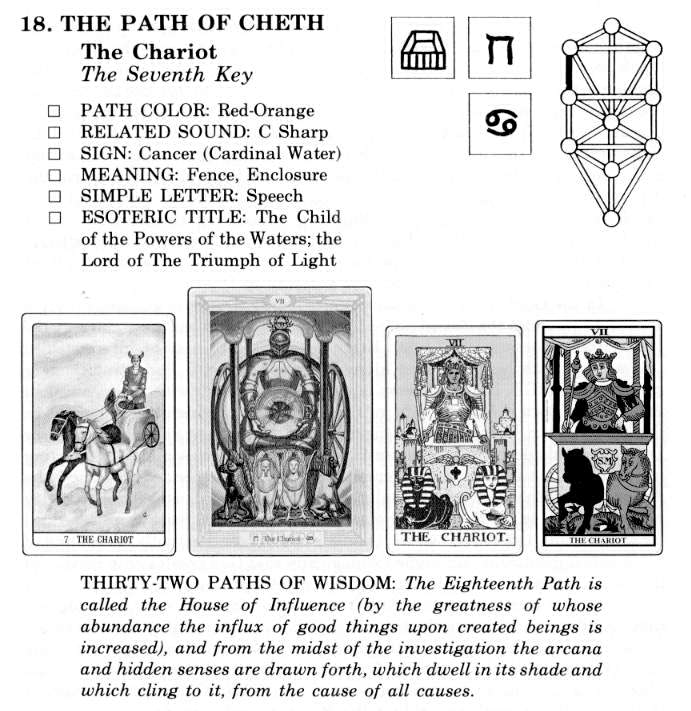
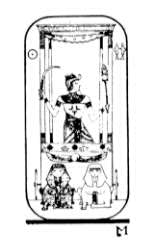
Here we see a warrior seated upon a cubic chariot; in one hand he holds a sword indicating victory, in the other hand is a staff surmounted by a square (control of matter), a circle (union with the eternal Truth), and a triangle (harmonious workings with the Divine).
The chariot is drawn by two sphinxes, one white, the other black — symbol of the positive and negative forces of nature over which he has gained mastery. There is a starry canopy above his head, supported by four columns. These four columns typify the four elements on which all forces of nature depend: Fire, Air, Water, Earth.
Every Wisdom Book, whether ancient, medieval or modern, contains varied descriptions of Initiation correlated with these four elements. The Water Initiation means control of the emotions; the Fire Initiation the purifying of the desires; the Air Initiation the spiritualizing of the mind; and the Earth Initiation, the mastery of the physical body. Throughout the Old and New Testaments many fascinating experiences are described which relate to these four Initiations. We turn now to the great hero of the Book of Exodus — Moses — in whose life these four Initiations are clearly defined.
There are four paths leading to Illumination, correlative to the four elements and to the four sheaths that make up the fourfold vehicle through which the human spirit evolves. In each body the spirit generates a certain type of energy; from each element it derives a distinctive power; with each Initiation added soul faculties become operative. Moses, in whose life the path of Initiation is outlined with exceptional clarity, took all of these four steps of Illumination, each of which we will discuss in the sequence in which Moses took them.
We have shown that after Moses had overcome his lower nature he went into the Midian desert but soon found himself not on parched ground but beside a well (esoteric truth). Seven maidens (soul qualities) were drawing water (attracting spiritual sustenance). Moses (the awakened aspirant) helped them (gave conscious cooperation).
Ater this "baptism with the waters of life by the Seven Virgins of Light," to use a phrase taken from an ancient initiatory chant, the victor over the emotional life was qualified to take up the work of a yet higher degree of Illumination.
The Initiation by Water took place beside a well. The next higher Initiation, by Fire, occurred on Horeb, the "mountain of God." Even so every aspirant climbs the ladder of being and enters increasingly into first-hand knowledge of the inner secrets of nature. The veils of matter are lifted, and objective nature is seen to be but a symbol of the world of reality. The very word "Mysteries" is related to the Greek word "mystor" meaning veil.
The bush that Moses looked upon burned but was not consumed. It was not enveloped in flames but in light. It is only the flame that consumes. The spirit of fire nurtures and builds. Flame bears much the same relationship to fire that the physical body does to the indwelling spirit.
A complete mastery of the lower nature is a prerequisite to Initiation by Fire. Passion must be raised to compassion, and the love that once burned for the gratification of self must have been transmuted into a consuming love for all mankind. As the sea belongs to the water element and the desert to fire, so does the mountain choose for its home the air. Moses, having taken the Initiation by Water at the Red Sea and Initiation by Fire in the Wilderness, is now qualified to take a third degree, the Initiation by Air on Mount Siani.
With the Initiation of Earth, the mystery of matter is mastered. The atomic vibration of the body can be altered at will, and the life of the physical instrument prolonged indefinitely. This is the last and most difficult of the four Great Initiations and is attainable only after renunciation of the little self, as Moses showed when he said that he would rather his name be blotted out of the Book of Life than that his recalcitrant people should be destroyed for their misdeeds.
The Earth Initiation gives admission into the deeper strata of the Earth and the ability to manipulate certain forces of the physical planet. It bestows upon its possessor, literally, the "keys to heaven and hell."
— Corinne Heline

|

|

|
|
|
Contemporary Mystic Christianity |
|
|
This web page has been edited and/or excerpted from reference material, has been modified from its original version, and is in conformance with the web host's Members Terms & Conditions. This website is offered to the public by students of The Rosicrucian Teachings, and has no official affiliation with any organization. | Mobile Version | |
|